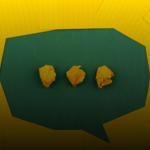Preview this deck
Beseeched
Front
Active users
6
All-time users
7
Favorites
0
Last updated
2 years ago
Date created
May 29, 2023
Cards (34)
Chapter 1
(28 cards)
Beseeched
"Beseeched" is a verb that means to urgently and fervently ask for something, often with a sense of desperation or earnestness. When someone "beseeches" another person or entity, they are pleading or requesting something from them with great sincerity and intensity. It implies a strong desire or need for assistance, guidance, favor, or mercy. It can be seen as a form of supplication or heartfelt entreaty.
Brambles
"Brambles" are thorny bushes or shrubs that often have tangled or prickly branches. They typically have numerous thorns or prickles that can catch on clothing or scratch the skin when touched. Brambles are commonly found in wild or overgrown areas and can form dense thickets or hedges. They are known for their ability to create barriers due to their thorny nature.
Hackles
"Hackles" refers to the hairs or feathers on the back of an animal's neck or along its spine. When an animal, such as a dog or a cat, becomes agitated, threatened, or excited, these hairs may stand up or become raised, causing the animal to appear larger and more intimidating. This physical response is often associated with feelings of aggression, fear, or arousal. The phrase "raising one's hackles" is commonly used metaphorically to describe a person becoming irritated, defensive, or angry in response to a perceived threat or offense.
Ground
In the context of the sentence, "ground" is used as a verb. When someone says, "I ground my teeth," it means they clenched their teeth tightly together, often as a sign of frustration, anger, or anxiety. It is an expression of a physical action where the upper and lower teeth come into contact with each other forcefully.
Telltale
"Telltale" is an adjective that describes something that reveals or indicates information or a secret. It can refer to a sign, clue, or evidence that gives away or exposes something. In the sentence you provided, "telltale trees stripped of bark" suggests that the absence of bark on certain trees is a clear sign or indicator of the deer's movement or presence. The stripped bark acts as a visible clue that helps track the deer's whereabouts.
Prowl
"Prowl" is a verb that means to move stealthily or wander around in search of something, typically referring to predatory animals. When someone says "wolves were on the prowl," it suggests that the wolves were actively moving and hunting in the area, likely in a cautious and sneaky manner. It conveys the idea of a deliberate and focused movement, usually associated with hunting or stalking behavior.
Gusting
"Gusting" refers to a strong or forceful burst of wind. It describes the action of wind blowing with sudden and powerful gusts, often characterized by a swirling or turbulent motion.
Shudder
A "shudder" is a verb that means to tremble or shake involuntarily, often as a result of fear, cold, or strong emotions. It can also be used as a noun to refer to the trembling or shaking itself. In the sentence you provided, "A shudder skittered down my spine," it indicates that the protagonist experienced a sudden involuntary trembling or shivering sensation that traveled down their spine. It suggests a physical reaction, possibly triggered by a feeling of unease or apprehension.
Stifling
"Stifling" is an adjective that describes the act of suppressing or restraining something, usually an emotion, feeling, or sound. It implies holding back or preventing something from being expressed or released. In the sentence you provided, "I stifled a groan," it means the person consciously restrained or suppressed the sound of a groan, perhaps to avoid drawing attention or expressing their discomfort.
Bark
"Bark" refers to the protective outer covering of a tree trunk and branches. It serves as a shield against external elements, including weather, insects, and diseases.
Stragglers
"Stragglers" refers to individuals or members of a group who lag behind or fall behind the main group. They are slower or delayed in their progress, often separated from the rest. In the context of hunting, "stragglers" would refer to animals that have become separated from the main group and are easier targets for the hunter. They are typically weaker or slower and are more vulnerable to being picked off individually.
Fraying
"Fraying" refers to the process of unraveling or becoming worn out, typically used to describe the condition of fabric or materials when the threads start to come apart. It can also be used metaphorically to describe something that is deteriorating or falling apart.
Twig
A "twig" refers to a small, thin branch or shoot of a tree or shrub. It is typically slender and flexible. Twigs are often found on the outer edges of trees and can be easily broken or snapped. In the context of the sentence you provided, "twig" may indicate a small and delicate piece of wood, possibly used for various purposes such as starting a fire or as a makeshift tool.
Skittered
"Skittered" is a verb that means to move quickly and lightly with a series of small, rapid steps or sounds. It often implies a movement that is quick, erratic, and perhaps a bit jittery. In the sentence you provided, "A shudder skittered down my spine," it suggests that the shudder traveled down the protagonist's spine in a quick and trembling manner, possibly evoking a sense of unease or discomfort.
Brooch
A brooch is a decorative jewelry accessory that is typically worn on clothing to fasten or adorn it. It is a decorative pin or clasp that can be made of various materials such as metal, gemstones, enamel, or fabric. Brooches come in different shapes, sizes, and designs, ranging from simple and understated to intricate and elaborate. They can be worn on garments such as dresses, blouses, or coats to add a touch of style or to hold fabric together. Brooches have been used throughout history as decorative accessories and can be both functional and fashionable.
Whimper
"Whimper" refers to a soft, low cry or sound made by a person or an animal when they are in pain, distress, or fear. It is a plaintive or pitiful sound, often associated with whimpering or whining. In the context of the passage, it implies that the wolf made a soft, pained sound, possibly indicating its suffering or vulnerability after being wounded by the arrow.
Gargantuan
"Gargantuan" is an adjective that describes something of enormous size, often suggesting a sense of being exceptionally large or colossal. It implies a scale or magnitude beyond what is considered normal or average. When used to describe an object, creature, or entity, it emphasizes its tremendous size and can evoke a sense of awe, astonishment, or even intimidation.
Maw
"Maw" refers to the mouth or jaws of a carnivorous animal, especially one that is large or menacing. It can also be used to describe the throat or stomach of such an animal. The term "maw" is often associated with a wide, gaping mouth that is capable of devouring or consuming prey. It can convey a sense of danger, ferocity, or voraciousness.
Quarry
"Quarry" has multiple meanings, but in the context of the sentence you provided, it refers to a target or potential prey that is hunted or pursued. It can be an animal or a group of animals that someone is attempting to capture or kill. In a broader sense, "quarry" can also refer to a place where stones or minerals are extracted, but in the sentence you provided, it pertains to the hunting context.
Flurries
"Flurries" refer to a light, brief, and intermittent fall of snow. It describes a scattered or swirling pattern of snowflakes that may come down in a flurry of activity. Flurries are typically short-lived and may not accumulate much on the ground.
Protruding
In general, the word "protruding" means something that is sticking out or extending beyond its surroundings. It describes an object or body part that is visibly projecting outward.
In the context of the passage, "protruding" is used to describe the position of the ash arrow in the wolf's side. It indicates that the arrow is visibly sticking out from the wolf's body, making it evident and conspicuous.
Doe
A doe refers to a female deer. In the context of the sentence you provided, it indicates that the narrator is observing the presence and movement of deer in the forest. The word "doe" specifically refers to an adult female deer, while a male deer is called a buck. The term "doe" is often used to differentiate between the genders of deer and is commonly associated with their graceful and gentle nature.
Falter
"Falter" means to hesitate or waver in action, speech, or purpose. It implies a moment of uncertainty, doubt, or weakness. When something falters, it may lose strength, stability, or effectiveness temporarily. In the context of the sentence you provided, the phrase "healing magic falter" suggests that the immortal and healing magic of the faeries becomes less reliable or less powerful in the presence of ash wood, making them vulnerable or weakened.
Peddlers
"Peddlers" refers to individuals who travel from place to place, selling goods or merchandise. They often carry their wares with them and go door-to-door or set up temporary stalls to showcase and sell their products. Peddlers typically offer a variety of items, ranging from household goods, clothing, and accessories to small tools, trinkets, and food items. They are often itinerant merchants who don't have a fixed location for their business and rely on personal interaction and direct selling to reach customers.
Eddying
"Eddying" refers to the swirling or circular movement of a fluid, typically air or water. It describes the motion when a fluid forms a circular pattern or whirlpool. In the context of the passage, it suggests that the snow was swirling or swirling around, possibly due to the wind or other factors.
Gangly
"Gangly" refers to a physical appearance characterized by being tall, thin, and awkward, often with long limbs that lack muscular development or proportion. A person described as gangly may have a lanky or ungainly stature, appearing somewhat uncoordinated or clumsy in their movements. It is a term used to describe someone who has not yet filled out their frame, typically during a period of growth or due to a lack of proper nutrition.
Tilled
"Tilled" refers to the process of preparing and cultivating land for farming or gardening. It involves breaking up and loosening the soil using tools such as a plow or hoe in order to create a favorable environment for planting seeds or crops. Tilling helps to improve soil structure, aerate the soil, and remove weeds or unwanted vegetation. It is an essential step in the agricultural practice to ensure proper seedbed preparation and optimal growing conditions for plants.
Hoisted
"Hoisted" means to lift or raise something with effort or force. It often involves using ropes, pulleys, or other means of mechanical assistance to lift an object. In the context of the passage, it suggests that the author lifted or raised something, possibly referring to the action of raising the bow or drawing the bowstring to shoot the arrow.
Chapter 2
(6 cards)
Clenching
"Clenching" refers to the action of tightly closing or squeezing something, typically with the muscles of the hand or jaw. It is often associated with a firm and tight grip. In the context of the passage, "clenching" refers to the author tightly gripping or squeezing the legs of the deer. It implies that the author held onto the legs firmly, possibly to carry or stabilize the deer while exiting the forest.
Awash
"Awash" typically means to be flooded or covered by something, often in a figurative sense. It can imply a state of being overwhelmed or surrounded by a particular element or quality. In the passage, "awash" is used to describe the world as being filled or saturated with hues of dark blue.
Striding
"Striding" refers to walking with long, decisive steps, usually with a sense of purpose or confidence. It implies a smooth and purposeful movement, with a certain level of grace and momentum.
In the passage, "striding" is used metaphorically to describe the protagonist's movement through the scene. It suggests that the protagonist is moving with purpose and confidence, as if walking through a living painting.
Threadbare
"Threadbare" refers to something, typically fabric or clothing, that is worn out or thin due to age and extensive use. It indicates that the material has become weak and frayed, with the threads of the fabric showing signs of wear.
In the passage, the author describes a blanket as "threadbare," suggesting that it is worn-out and in poor condition.
Asp
An "asp" refers to a venomous snake, specifically the Egyptian cobra (Naja haje). It is known for its highly toxic venom and can deliver a lethal bite.
In the passage, the author uses the simile "biting my skin like an asp" to describe the sensation of the frozen iron handle on the wooden door. The comparison implies that the handle felt extremely cold and caused a sharp, stinging sensation akin to being bitten by a venomous snake.
Dilapidated
"Dilapidated" refers to something that is in a state of severe disrepair, decay, or ruin. It describes something that is falling apart, crumbling, or in a state of neglect and deterioration.
In the passage, "dilapidated" is used to describe the cottage. It indicates that the cottage is in a state of extreme disrepair, with visible signs of decay and neglect. The use of "dilapidated" suggests that the cottage is in a state of ruin, with structural damage and a general lack of maintenance.




